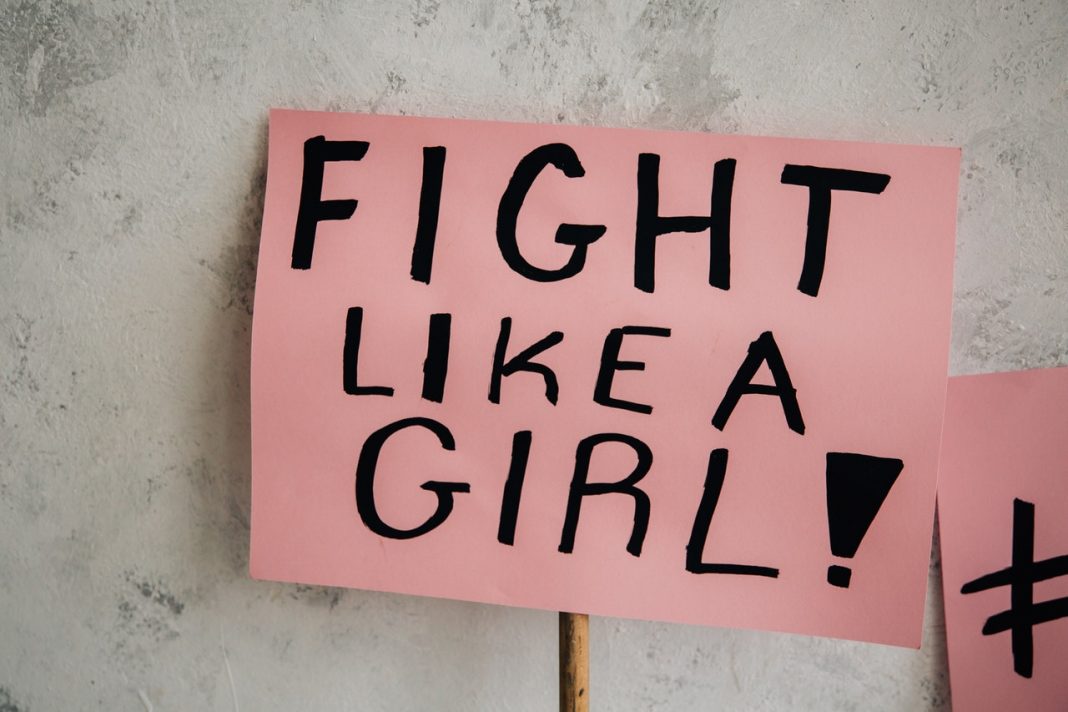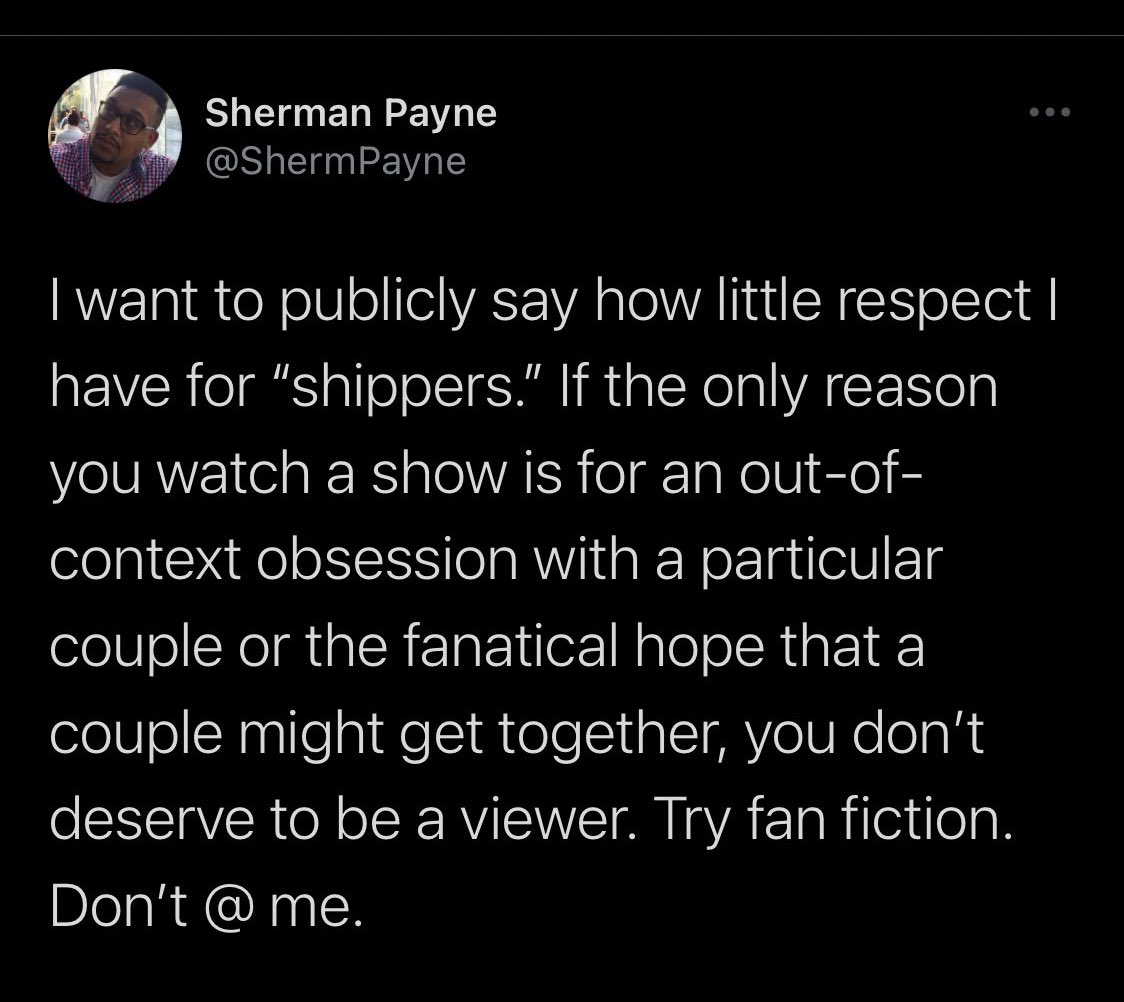Here on Fandom Flames, we’ve talked about women-centered media and fandoms getting left behind before, but now, we’re doing a deep dive. By “left behind,” I mean, for the most part, being dismissed and ignored, if not receiving outright ridicule and ire. In the case of some men, a piece of media being about women and for women makes it irrelevant and even silly or fluffy, even though some of them are anything but. Fandom is often treated this way too, with many fandoms and fan activities being diminished by creators and others. A recent tweet from TV writer and producer Sherman Payne, for example:
And while plenty of people pushed back on Payne’s words, the point is that a lot of fandom, which is women-dominated in certain quarters, has trouble gaining any sort of traction as a “serious” group of people. This is despite fan campaigns arguably saving shows, merchandise bought by fans doing huge business for the larger media corporations, and fans boosting (or negating) reputations and audiences of various films, TV, and music on social media.
Still, women-centered media and fandoms have gotten decried and ridiculed for years: an old CNN blog post published only nine years ago cries about “booth babes.” Another article, published in 2019, this time by a defender of women fans, particularly teens, shows that things haven’t changed much in the interim. There’s the legendary Sherlock fandom, which, with its mild conspiracy-theory vibe, was never taken seriously.
WandaVision got dismissed by some critics and some fans for being boring, or, “comfort TV”: Darren Franich of Entertainment Weekly hurled that particular accusation. What, exactly, is “comfort TV”? And why isn’t, say, The Falcon and the Winter Soldier, which suffered from similar pacing problems, considered the same thing? You know why, and I know why. WandaVision was centered around a woman and her problems, as well as the inherent problems in domesticity—women’s issues, women’s problems, women’s show…comfort TV.
If women aren’t eye candy, or snarky and strong, they get pushed aside to “another” category of media. Or worse: if they aren’t being violated or murdered, they get shuffled off. Happy endings or near-happy endings for women don’t count. Look at the ending of Game of Thrones, which while nearly universally ridiculed, ended with the showrunners deciding they needed to make their leading heroine insane and not suited to power. Shows like Law & Order: Special Victims Unit are often dismissed by both feminists and sexists, for entirely different reasons. Still, they provide a weird sort of comfort to women, as this excellent article points out. They provide a world where women’s trauma gets resolved. WandaVision kind of did, too.
In a world where fandom spaces can be a space of harassment, the gap between women-centered media and more male-centered media needs to be bridged. Whether through advertisers attempting more gender parity (like that’s going to happen), or fandom and criticism just shaping up a little more, bit by bit, year by year, this subtle and insidious form of discrimination needs to stop. Or maybe, just maybe, we could just get more women-centered media in general to bridge the gap in representation. Nothing will be solved overnight, but if we’re all made a little more aware of the problems we face, maybe we can work together to make things a little better bit by bit.









